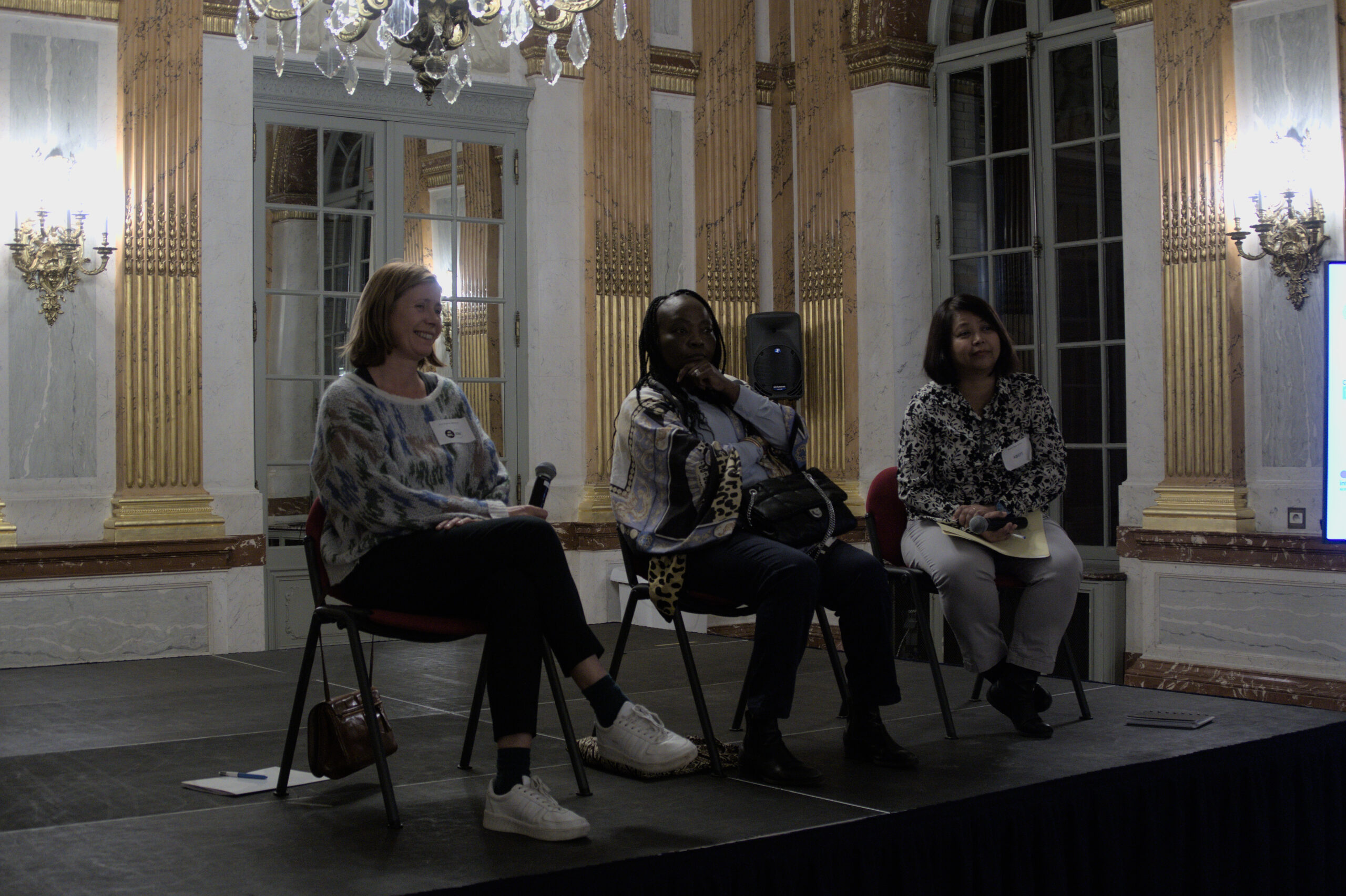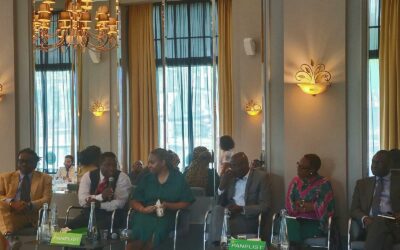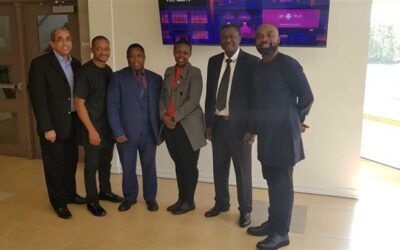In a desire to strengthen Brussels’ international solidarity, Soliris.brussels offers
each year to the actors of the Brussels cooperation a day of meeting which wants to be a space of
for exchange and discussion.
On Thursday 17 November, ADEPT was invited to discuss and exchange on the issues of International Solidarity.
Mirana Rajoharison, executive director of ADEPT in charge of programs, spoke as a panellist during the round table : “from local to global, international solidarity in Brussels”. A round table introduced by a guest of honour the Secretary of State Pascal Smet.The aim was to highlight the challenges and initiatives of local work, with diaspora associations, with the objective of opening up to global perspectives.
Mirana presented the role of ADEPT and explained that the network of ADEPT is made up of 46 members and represents several thousand associations of the diaspora. Indeed, among these members, there are federations, as well as platforms of the diaspora at the country level. This is notably the case of FORIM, based in France, which represents on its own, 1000 associations of the African diaspora.
The executive director of ADEPT in charge of programs, stressed the importance of deconstructing the common idea that the diaspora would do co-development. To support her point, Mirana gave the example of certain regions of Mali, where 60% of schools were built by the diaspora. She demonstrated that the impact of the diaspora should not be minimized: education is development. As a final word, Mirana underlined and congratulated the work of Soliris with the associations of the diaspora and encouraged them not to remain isolated, to federate, to speak with one voice in order to amplify their strength. She recalled and insisted on the fact that the associations of the diaspora make development.
Shaany Nsondé, Junior Advocacy and Policy Officer of ADEPT, participated in the workshop: “Gender dimension in international solidarity: breaking the glass ceiling? All the participants had to give their point of view on the current situation concerning the place of women in the sector.
Shaany as a woman from the African diaspora, stressed the importance of systematically taking into account the notion of intersectionality when talking about the condition of women and the discrimination and violence they suffer. She was also asked to conclude the workshop by highlighting good practices observed in the field or possible good practices to be implemented and pointed out that men are often taking a lot of space. Whether it is in the duration of the speeches, or in the interventions during the question-and-answer sessions for example, the place given and taken by men is consequent. This predominant place contributes to minimizing women’s contributions, even during team meetings where men’s speaking time is often in the majority, as the director of the Echos Communications organization pointed out during the workshop.
Political advocacy and speaking out are tools used by many, if not all, associations and organizations in the international solidarity sector. Workshops/trainings that would increase women’s confidence and raise men’s awareness would therefore be good practices to implement.
This Soliris day allowed ADEPT to potentially increase its network with new members; thanks to the meeting and the exchange with associations of the African diaspora based in Brussels and willing to join the ADEPT network.



